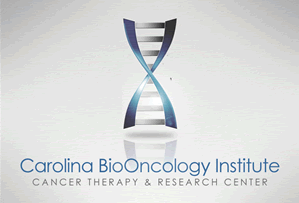Safety Study of MGD009 in B7-H3-expressing Tumors
| Status: | Recruiting |
|---|---|
| Conditions: | Breast Cancer, Lung Cancer, Lung Cancer, Prostate Cancer, Colorectal Cancer, Skin Cancer, Ovarian Cancer, Cancer, Cancer, Cancer, Cancer, Cancer, Cancer, Cancer, Cancer, Cancer, Cancer, Cancer, Cancer, Cancer, Cancer, Cancer, Pancreatic Cancer, Bladder Cancer, Thyroid Cancer |
| Therapuetic Areas: | Oncology |
| Healthy: | No |
| Age Range: | 18 - Any |
| Updated: | 3/8/2019 |
| Start Date: | September 2015 |
| End Date: | March 2020 |
| Contact: | Amy Worth |
| Email: | wortha@Macrogenics.com |
| Phone: | 240-660-0757 |
Phase 1, First-in-Human, Open Label, Dose Escalation Study of MGD009, A Humanized B7-H3 x CD3 Dual-Affinity Re-Targeting (DART) Protein in Patients With Unresectable or Metastatic B7-H3-Expressing Neoplasms
The purpose of this study is to evaluate the safety of MGD009 when given to patients with
B7-H3-expressing tumors. The study will also evaluate what is the highest dose of MGD009 that
can be given safely. Assessments will be done to see how the drug acts in the body
(pharmacokinetics (PK), pharmacodynamics (PD) and to evaluate potential anti-tumor activity
of MGD009.
B7-H3-expressing tumors. The study will also evaluate what is the highest dose of MGD009 that
can be given safely. Assessments will be done to see how the drug acts in the body
(pharmacokinetics (PK), pharmacodynamics (PD) and to evaluate potential anti-tumor activity
of MGD009.
This study is a Phase 1 open-label, dose escalation, cohort expansion, and efficacy follow-up
study of MGD009 administered intravenously (IV) on an every-other-week schedule for up to one
year (14 cycles).
The dose escalation phase is designed to characterize the safety and tolerability of MGD009
and to define the maximum tolerated or maximum administered dose (MTD/MAD). This phase will
enroll patients with mesothelioma, bladder cancer, melanoma, squamous cell carcinoma of the
head and neck (SCCHN), non-small cell lung cancer (NSCLC), clear cell renal cell carcinoma
(ccRCC), ovarian cancer, thyroid cancer, triple-negative breast cancer (TNBC), pancreatic
cancer, colon cancer, soft tissue sarcoma, or prostate cancer.
In the cohort expansion phase, 6 cohorts of 16 patients each will be enrolled to further
evaluate the safety and potential efficacy of MGD009 administered at the MTD/MAD dose in
patients with mesothelioma, bladder cancer, melanoma, SCCHN, NSCLC, or other specific tumors
that express high levels of B7-H3. Pre- and on-study biopsies are required for melanoma
patients in the cohort expansion phase. Two additional cohorts (up to15 patients each) will
evaluate the use of prophylaxis therapies to mitigate toxicity.
The survival follow-up phase consists of the 2-year period after the final dose of study
drug.
All tumor evaluations will be carried out by both Response Evaluation Criteria in Solid
Tumors (RECIST) and immune-related response criteria (irRC).
study of MGD009 administered intravenously (IV) on an every-other-week schedule for up to one
year (14 cycles).
The dose escalation phase is designed to characterize the safety and tolerability of MGD009
and to define the maximum tolerated or maximum administered dose (MTD/MAD). This phase will
enroll patients with mesothelioma, bladder cancer, melanoma, squamous cell carcinoma of the
head and neck (SCCHN), non-small cell lung cancer (NSCLC), clear cell renal cell carcinoma
(ccRCC), ovarian cancer, thyroid cancer, triple-negative breast cancer (TNBC), pancreatic
cancer, colon cancer, soft tissue sarcoma, or prostate cancer.
In the cohort expansion phase, 6 cohorts of 16 patients each will be enrolled to further
evaluate the safety and potential efficacy of MGD009 administered at the MTD/MAD dose in
patients with mesothelioma, bladder cancer, melanoma, SCCHN, NSCLC, or other specific tumors
that express high levels of B7-H3. Pre- and on-study biopsies are required for melanoma
patients in the cohort expansion phase. Two additional cohorts (up to15 patients each) will
evaluate the use of prophylaxis therapies to mitigate toxicity.
The survival follow-up phase consists of the 2-year period after the final dose of study
drug.
All tumor evaluations will be carried out by both Response Evaluation Criteria in Solid
Tumors (RECIST) and immune-related response criteria (irRC).
Inclusion Criteria:
- Histologically and/or cytologically proven unresectable locally advanced or metastatic
tumors that express B7-H3 on the membrane or vasculature. The requirement for previous
systemic therapy may be waived if a person was intolerant of standard front-line
therapy
- Dose escalation phase prior systemic treatment requirements:
- pleural mesothelioma, pancreatic cancer: 1-3 prior treatments
- urothelial, SCHNN, prostate, soft tissue sarcoma, prostate cancer, TNBC, ccRCC, NSCLC:
1-5 prior treatments
- ovarian cancer: 2-4 prior treatments
- colon cancer: 2-4 prior treatments
- cutaneous melanoma: at least 1 prior treatment (including immunotherapy).
- Patients with prior immune checkpoint inhibitors must have related toxicities reduced
to Grade 0, 1, or baseline
- Measurable disease per RECIST 1.1 criteria
- Easter Cooperative Oncology Group (ECOG) performance status 0 or 1
- Acceptable laboratory parameters and adequate organ reserve.
Exclusion Criteria:
- Patients with central nervous system (CNS) involvement must have been treated, be
asymptomatic, do not exhibit progression of CNS metastases on MRI or CT within 28
days, and do not have concurrent leptomeningeal disease or cord compression.
- Clinically significant pulmonary compromise within 28 days of first dose, including
pneumonia, pneumonitis, requirement for supplemental oxygen). use to maintain adequate
oxygenation, or pleural effusion sufficient to warrant pleurocentesis or any history
of ≥ Grade 3 drug induced or radiation pneumonitis.
- History of autoimmune disease with certain exceptions such as vitiligo, resolved
childhood atopic dermatitis, psoriasis not requiring systemic therapy within the past
2 years, patients with history of Hashimoto's or Grave's disease that are now
euthyroid clinically and by lab testing
- History of clinically-significant cardiovascular disease, or cardiac arrhythmias,
including atrial fibrillation at screening or day of treatment
- History of clinically-significant gastrointestinal (GI) disease; GI perforation within
1 year; GI bleeding or acute pancreatitis within 3 months; or diverticulitis within 4
weeks of first study drug administration
- Active viral, bacterial, or systemic fungal infection requiring parenteral treatment
within 7 days of first study drug administration
- Known history of hepatitis B or C infection or known positive test for hepatitis B
surface antigen or core antigen, or hepatitis C polymerase chain reaction (PCR)
- Known positive testing for human immunodeficiency virus or history of acquired immune
deficiency syndrome
- History of allogeneic bone marrow, stem cell, or solid organ transplant
- Treatment with systemic cancer therapy or investigational therapy within 3 weeks of
first study drug administration; radiation within 2 weeks; corticosteroids (greater
than or equal to 10 mg prednisone or equivalent per day) or other immune suppressive
drugs within 2 weeks of first study drug administration
- Trauma or major surgery within 4 weeks of first study drug administration
- Known hypersensitivity to recombinant proteins, polysorbate 80, or any excipient
contained in the drug or vehicle formulation for MGD009
We found this trial at
15
sites
San Antonio, Texas 78229
Principal Investigator: Anthony Tolcher, M.D.
Phone: 210-593-5934
Click here to add this to my saved trials
185 Cambridge Street
Boston, Massachusetts 02114
Boston, Massachusetts 02114
617-724-5200

Principal Investigator: Gregory Cote, MD
Phone: 617-726-1083
Click here to add this to my saved trials
9801 W. Kincey Ave
Huntersville, North Carolina 28078
Huntersville, North Carolina 28078
704-947-6599

Principal Investigator: John D. Powderly, M.D.
Click here to add this to my saved trials
450 Brookline Ave
Boston, Massachusetts 2215
Boston, Massachusetts 2215
617-632-3000

Principal Investigator: F. Stephen Hodi, MD
Phone: 617-582-7545
Dana-Farber Cancer Institute Since it’s founding in 1947, Dana-Farber has been committed to providing adults...
Click here to add this to my saved trials
Click here to add this to my saved trials
Dallas, Texas 75246
Principal Investigator: James Strauss, MD
Phone: 972-566-3065
Click here to add this to my saved trials
8503 Arlington Blvd., Ste. 400
Fairfax, Virginia 22031
Fairfax, Virginia 22031
(703) 280-5390

Principal Investigator: Alexander Spira, MD
Phone: 703-208-3159
Virginia Cancer Specialists, PC Now the world's most advanced cancer treatment capabilities can be found...
Click here to add this to my saved trials
UCLA UCLA's primary purpose as a public research university is the creation, dissemination, preservation and...
Click here to add this to my saved trials
Click here to add this to my saved trials
70 Washington Square S
New York, New York 10012
New York, New York 10012
(212) 998-1212

Principal Investigator: Daniel Cho, MD
Phone: 646-754-7397
New York University More than 175 years ago, Albert Gallatin, the distinguished statesman who served...
Click here to add this to my saved trials
Columbia University Medical Center Situated on a 20-acre campus in Northern Manhattan and accounting for...
Click here to add this to my saved trials
Palo Alto, California 94304
Principal Investigator: Shivaani Kummar, MD, FACP
Phone: 650-721-4090
Click here to add this to my saved trials
Philadelphia, Pennsylvania
Principal Investigator: Christine Ciunci, M.D.
Phone: 215-662-8790
Click here to add this to my saved trials
San Francisco, California 94143
Principal Investigator: Lawrence Fong, MD
Phone: 415-502-8075
Click here to add this to my saved trials
3700 O St NW
Washington, District of Columbia 20057
Washington, District of Columbia 20057
(202) 687-0100

Principal Investigator: Geoffrey Gibney, MD
Phone: 202-687-6871
Georgetown University Georgetown University is one of the world's leading academic and research institutions, offering...
Click here to add this to my saved trials

